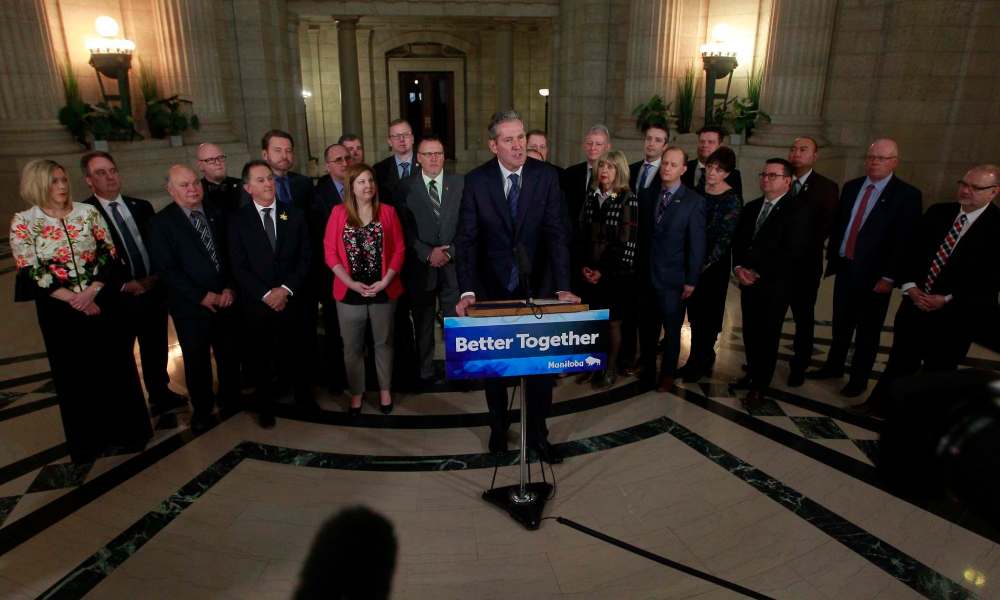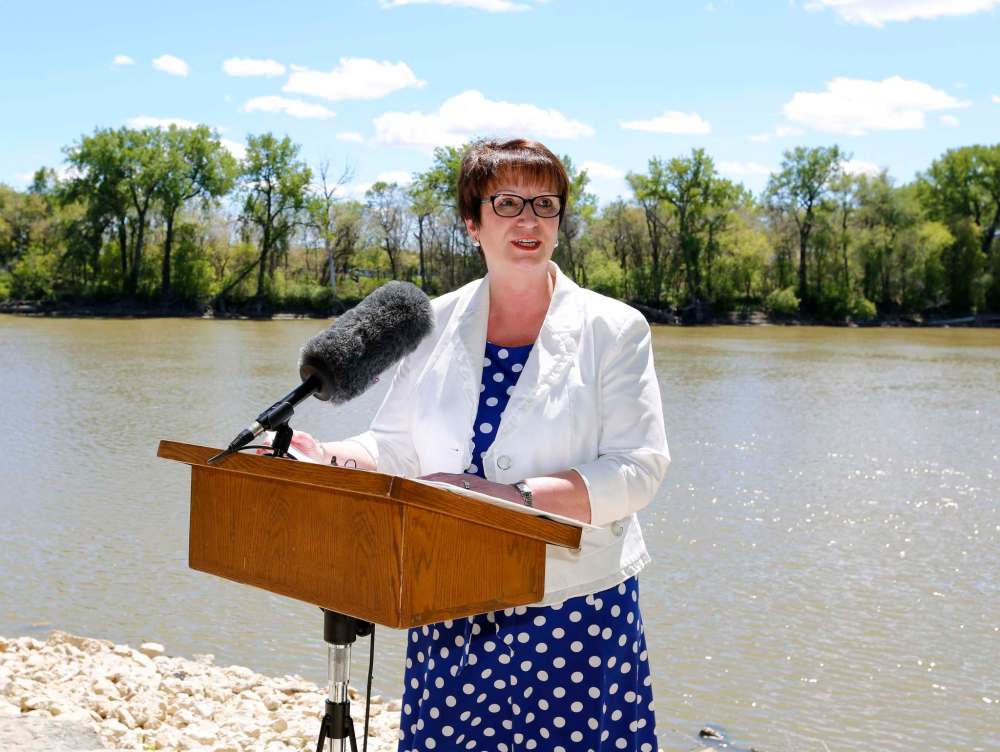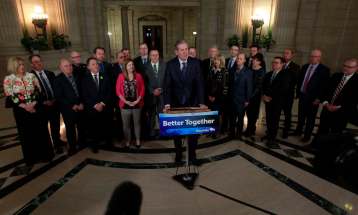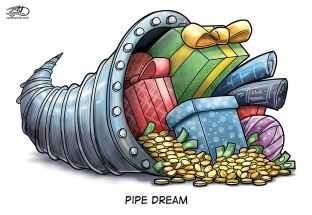It took a couple of years, but it looks like Tories have learned their ABCs
Read this article for free:
or
Already have an account? Log in here »
To continue reading, please subscribe:
Monthly Digital Subscription
$0 for the first 4 weeks*
- Enjoy unlimited reading on winnipegfreepress.com
- Read the E-Edition, our digital replica newspaper
- Access News Break, our award-winning app
- Play interactive puzzles
*No charge for 4 weeks then price increases to the regular rate of $19.00 plus GST every four weeks. Offer available to new and qualified returning subscribers only. Cancel any time.
Monthly Digital Subscription
$4.75/week*
- Enjoy unlimited reading on winnipegfreepress.com
- Read the E-Edition, our digital replica newspaper
- Access News Break, our award-winning app
- Play interactive puzzles
*Billed as $19 plus GST every four weeks. Cancel any time.
To continue reading, please subscribe:
Add Free Press access to your Brandon Sun subscription for only an additional
$1 for the first 4 weeks*
*Your next subscription payment will increase by $1.00 and you will be charged $16.99 plus GST for four weeks. After four weeks, your payment will increase to $23.99 plus GST every four weeks.
Read unlimited articles for free today:
or
Already have an account? Log in here »
Hey there, time traveller!
This article was published 30/05/2018 (2755 days ago), so information in it may no longer be current.
Governments that want a chance to govern for long period of time are typically those that take a “long view” of their work.
That is to say, the decisions that they make, and the policies that they institute, tend to be well thought out and strategically designed to ensure they are fair, effective and — most important — defensible.
Governments that experience short shelf lives, on the other hand, tend to be those that make rash, poorly conceived decisions that do not adequately account for political consequences. These are governments that are constantly putting their foot in it, delivering decisions and policies that anger both core supporters and critics.

Where does Premier Brian Pallister’s Progressive Conservative government fall in the “long-view” equation? Depends on the issue.
On certain files, this is a government that has frequently shot first and asked questions later. The fallout from missteps on health care and fiscal matters — where claims were made, numbers released and policies instituted without proper advance planning — are still being managed by the Tories. On other files, however, there has been promising planning and execution.
Like the ABCs.
In government slang, ABCs is shorthand for appointments to government controlled “agencies, boards and commissions.” There are more than 200 ABCs within provincial jurisdiction, and the appointments government makes are important both in terms of operations and managing partisan expectations. Mess up on the ABCs, and there is a strong likelihood that the government responsible will be roasted in the media, disparaged by special interests and derided by members of its own party.
How has the Pallister government fared on its ABCs? An examination of appointments data, obtained by the Free Press, shows a remarkable attention to the small details.
Since taking power in May 2016, the Pallister government has made 1,425 appointments to 180 different agencies, boards and commissions. And of those, 51.3 per cent were female. Given the recent global attention to issues such as sexual harassment and gender equality, this is a pretty darn good result and a sign that the Tories are paying attention to those piddly little political details that cause them so much trouble.
Given that there is, and remains, a significant gender imbalance on many ABCs, ensuring that just over half of new appointments are women is not an aggressive remedy. However, it is a fair and reasonable approach that, if maintained over a long period of time, could make a real impact.

The numbers also show the current government is performing at slightly better clip than the former NDP government. An analysis provided by the current government indicates that women made up only 45 per cent of all appointments by the former government. It’s hard to directly compare two years of Tory government with 17 years of NDP rule, but it is promising at this early stage.
The current government also claims it is doing better in other areas of the diversity challenge. The current government said that 9.3 per cent of its appointees are bilingual, 8.2 per cent are Indigenous, 5.7 per cent are visible minorities and 1.6 per cent are disabled. In all categories, the current government claims it is slightly outperforming the previous government.
These results are significant, if only for the fact that over the past two years, diversity has not been one of the PC government’s strong suits.
Out of its historic 38-seat majority (now 37 thanks to the expulsion of MLA Steven Fletcher), only seven women were elected. Given that result, its hardly a surprise then that Pallister’s 14-member cabinet includes only four women. As well, Pallister has had to fend off allegations that he has not made efforts to include enough women in key cabinet committees such as Treasury Board, which currently has two women (Justice Minister Heather Stefanson and Indigenous/Northern Affairs Minister Eileen Clarke) among its eight members.
There have been other setbacks as well, like the time in 2017 when the Tories removed two high-profile women from the Winnipeg Police board — one an Indigenous activist, the other a visible minority and inner-city educator. The move was tone-deaf, as was the premier’s response to criticism that the moves were making the board less diverse when it really should have been increased.
Pallister said at the time that he was more worried about merit than identity, a bad card to play when you’re facing criticism about diversity. It suggests that the premier couldn’t find qualified women, or women of colour, to do this job. Which is really silly.
Politics and government in this country have been under the gun for having lived too long with cultures that are dangerous for women and minorities. Although there are many factors that go into creating a toxic culture, the over-representation of men in both the political and administrative side of government is certainly a key part of the equation. Getting more women and visible minorities involved in electoral politics, public administration and government appointments is critically important if that culture is ever going to change.

Perhaps it was as a result of waging a losing battle to defend a bad decision. Or, maybe it was the sudden realization that doing the right thing on appointments is just good public policy.
The moral of this story is pretty simple: when you’re in government, it’s always better to take the time and put in the effort to make good decisions rather than try to defend bad ones.
With its thoughtful attention to the ABCs, the Pallister government is showing signs that it has learned that tough but important lesson.
dan.lett@freepress.mb.ca
By the numbers
Here are the latest numbers on Agencies Boards and Commissions since May 2016 ( approx. 180 boards with 1,425 appointees):
- 51.3% women appointments (previous government was 45.5%)
- 9.3% bilingual (previous government was 7.7%)
- 8.2 % Indigenous (previous government was 7.2%)
- 5.7% visible minority (previous government was 4.3%)
- 1.6% disabled (previous government was .95%)

Born and raised in and around Toronto, Dan Lett came to Winnipeg in 1986, less than a year out of journalism school with a lifelong dream to be a newspaper reporter.
Our newsroom depends on a growing audience of readers to power our journalism. If you are not a paid reader, please consider becoming a subscriber.
Our newsroom depends on its audience of readers to power our journalism. Thank you for your support.
History
Updated on Wednesday, May 30, 2018 11:02 PM CDT: Adds numbers box
Updated on Thursday, May 31, 2018 9:46 AM CDT: Adds missing word








